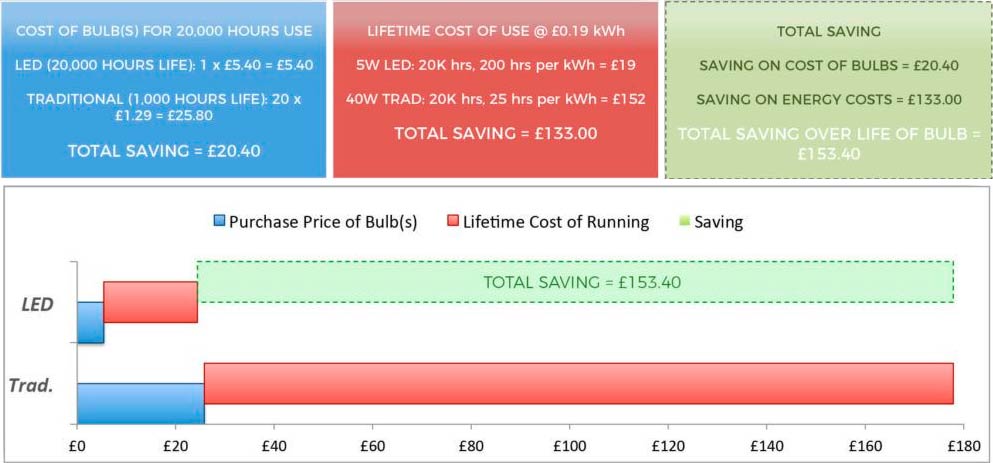If you are thinking of making the switch to LED lights, you absolutely should, and to save you hours of time trawling across the internet looking for the answers to some of your questions, we’ve compiled them all in one place, so that you can focus on choosing the best option for you.
How much do LED lights cost?
There’s different types of LED light so the cost will vary but if you do buy LED light bulbs you need to consider far more than just the initial cost. Other factors such as the amount of electricity saved in comparison to other bulbs should come into your thinking.
For example, an incandescent light bulbs should last around 1,200 hours but If you compare this to the average lifetime of an LED bulb, at 60,000 hours, you start to see the savings that can be made. You would need between 45-50 incandescent bulbs to last this long.Do LED lights get hot?
Incandescent bulbs do become very warm when producing light. That’s a fact. But let’s also be clear that LED lights generate heat. LED light bulbs don’t create warm in the same way incandescent bulbs though. In fact, you can easily unscrew a LED bulb which has been on for days and you wouldn’t get burned.
Can you cut LED lights?
You can only cut some LED strip lights and if you are cutting them make sure that you are cutting them the right way! If the product has a “cut line” or it says in the instructions then you may be able to cut them, otherwise it’s unlikely. It’s probably best to contact the supplier before purchase.
Do LED lights raise electric bills?
Overall, LED lights use less electricity, are better for the environment and in the long run, cost you less than incandescent bulbs. The amount of electricity used for lighting should actually reduce monthly by 85-90% because of the Wattage required and efficiency of the lights themselves.
Are LED lights bad for your eyes?
LED lights are generally brighter so if you focused your eyes on them for a lengthy period of time, it could strain or potentially damage your eyesight. This is not just the case for LED lights. If you focus on one bright household light for long enough that could also be harmful, so the message quite simply is to take care and not stare at your lights once you have turned them on.
What colour light should you sleep with?
It’s often down to personal preference as to which LED light colour is best for your sleep.
Many people argue that a red light is best for sleep, because it has a low colour temperature, far lower than regular sunlight. You can be immersed in red light at night and it is thought that it has a slightly more calming impact than the blue light alternative.
If you have any LED light questions, or a light question in general, get in touch with a member of our team today.





